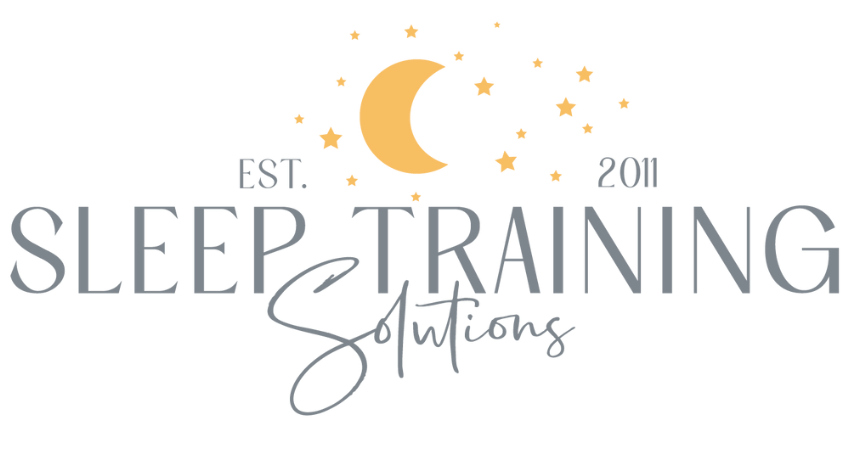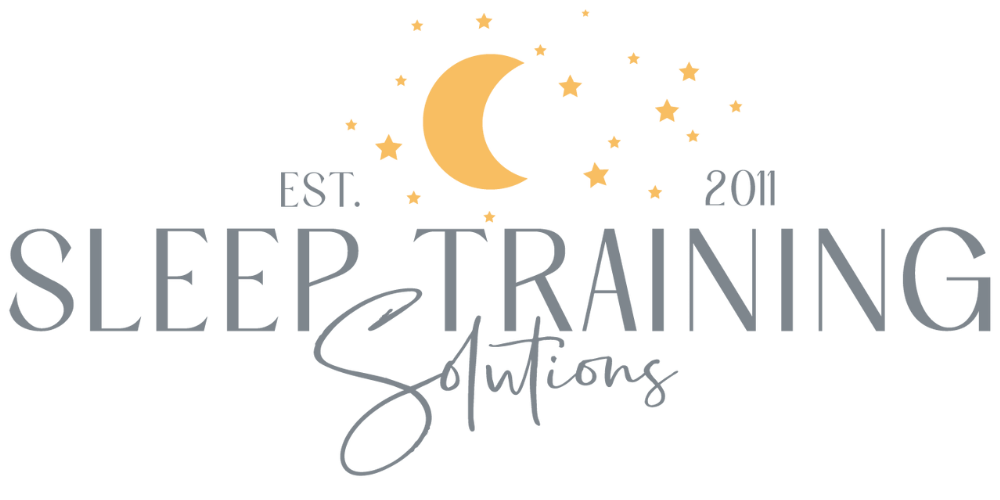When is the best time to start sleep training?
One of the most frequent questions from parents is, “How do you know when your baby is ready to start sleep training?”
For babies, there are four criteria that I look at with each family to determine whether this is an optimal time to start sleep training:
Are there any unresolved medical issues?
If a baby has uncontrolled reflux or a suspected food allergy, etc it’s important to get those under control before working on teaching your child how to sleep. You wouldn’t want your child to be crying out of discomfort during sleep training – and getting the green light from your pediatrician that your child is healthy and developmentally ready for sleep training gives parents peace of mind about starting the process.
Baby needs more of the sleep props
If you’ve been feeding or rocking your baby to sleep, and what used to take 5 minutes now takes 20, 40, 60 minutes to get the same outcome (baby falling asleep while being fed or rocked), means that the sleep props are losing their effectiveness. In essence your baby wants to be able to fall asleep without them, but is so used to them that she needs “a bigger dose” of them, if you will, to have the same effect.
Baby is waking more frequently at night
If your baby is being fed to sleep and you transition him into the crib once he’s asleep, when he wakes up, he’s going to confused why he’s now alone in his bed. He’ll cry for you, you may feed/rock him back to sleep, transition him back into the crib once he’s asleep, and the cycle keeps repeating itself because he’s always being put into the crib asleep, so he wants you to recreate how he originally fell asleep each time. Starting to wake more often in the middle of the night for a feed (assuming he’s not going through a growth spurt, which would only last a day or two), and especially if the feeds are short, shows that he’s relying on that feed-sleep association to get back to sleep.
Baby is sleeping shorter stretches during the day
If your baby was taking at least one longer nap and now they’re all 20-40 minutes long or your baby never slept past 40-45 minutes, that shows that she’s got some sleep associations and hasn’t learned to self-soothe into the next sleep cycle.
Assuming you check off #1 and at least one of the other three, then it’s a great time to start sleep training. When you start experiencing #2-4, things will progressively decline without a nudge in the right direction, including getting rid of sleep props/associations, making sure you’ve got the right schedule to set her up for success in falling asleep independently and being really consistent.
Thinking about starting sleep training? Download your free PDF to help set you up for success!
That said, if any of these scenarios below apply to your situation, it’s best to hold off – these are NOT optimal times to start:
Right before a vacation
You want to do sleep training with enough of a buffer before the trip that all your hard work sticks and you don’t have to reboot when you get back home! My sleep training process for babies is two weeks, so I always suggest starting at least 2-3 weeks prior to leaving. The more time you have between completing sleep training and the trip the better! And bonus if you do plan ahead…you’ll have a great sleeper while on vacation which will make the trip so much more enjoyable!
Right before you go back to work
At least once a month, I get a frantic email from a mom coming off maternity and needing to get her baby sleeping better. These emails inevitably come in the Friday before returning back to work – and baby going to daycare – that on Monday. Eek!
Even with a super fast turnaround on a sleep plan, a weekend isn’t enough time to make any substantial progress that will actually stick. When maternity/paternity leave is ending, it’s always best to give yourself at least 10-14 days to get sleep training started (and hopefully completed!) before sending your little one off to daycare. If that maternity/paternity leave ends at 3 months, baby is likely not quite ready for sleep training, and in that instance it’s best to wait a few weeks until baby is developmentally ready.
At that point, one way to speed up sleep training while in daycare is to do it over a long weekend and/or take a day off or day working from home to get your little one on the right track. The longer your baby has to master sleeping well at home, the easier learning to sleep in a second environment will be.
Having relatives visit
If you have special visitors coming to town and you know napping in the crib on schedule will be a challenge because you’ll be out and about a lot or you’re worried about waking up your guests in the middle of the night as your child learns how to self-soothe back to sleep, then it’s not a great time to start sleep training. Consistency works in your favor during sleep training.
So, now you know what signs to look for that your baby is ready for sleep training (which often means sleep training will work faster too!) and times that you don’t want to start.
If you’re reading this and thinking it may be a good time but still have some hesitation or not quite sure HOW to start, click here and schedule an evaluation call with me. You’ll get off the phone with me knowing exactly why your baby isn’t sleeping and how we can solve those issues together so everyone can start sleeping better at night!
Related Posts:
This post is for informational purposes only and may not be the best fit for you, your child and/or your personal situation. It shall not be construed as medical advice. The information and education provided here is not intended or implied to supplement or replace professional medical treatment, advice, and/or diagnosis. Always check with your child’s physician or medical professional before trying or implementing any information read here.






